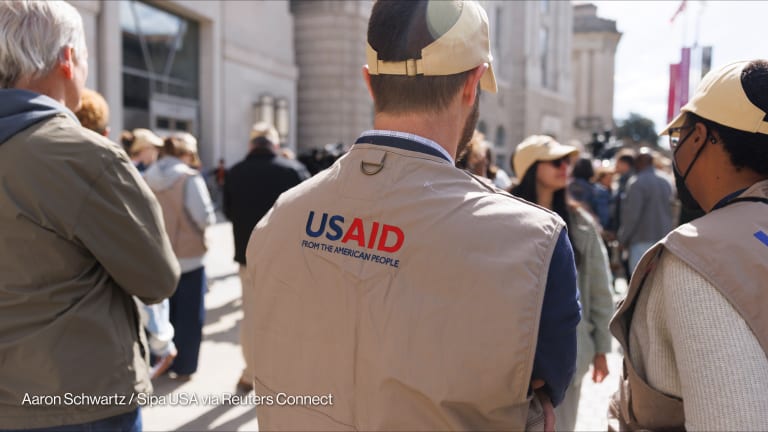
The U.S. Agency for International Development is increasing outreach to small businesses in an effort to facilitate new partnerships.
USAID procurement policies are complex and may seem daunting to small organizations unfamiliar with navigating the federal bureaucracy.
But the agency has garnered praise lately for its monthly outreach to vendors and a new mentorship program targeting small businesses.
Of the $3.6 billion USAID awarded to contractors between October 2008 and February 2009, less than one third went to small businesses, according to the agency. Some $1.2 billion went to U.S. organizations and individuals.
Small “firms need to be able to market themselves as new opportunities come out,” Mauricio Vera told Devex earlier this year.
Vera heads USAID’s Small and Disadvantaged Business Utilization and Minority Resource, whose goal is to help firms put themselves in better positions to be awarded USAID contracts. The office advocates for the use of small businesses as prime or subcontractors, and assists small businesses with the USAID procurement process. It also conducts vendor sessions and one-on-one meetings with small firms that have never worked with USAID and are eager to learn about contracting opportunities and processes.
In January, OSDBU rolled out a mentor-protégé program that allows small firms to team up with larger USAID contractors to learn about the agency’s procurement processes.
The program is designed to bring together like-minded firms of different sizes, Vera noted.
“There has to be a logical fit between the prime contractor and the small business,” he said.
The program should help smaller firms understand how to deal with USAID requirements, including paperwork and other bureaucratic matters, Vera added. (The U.S. Small Business Association for International Contractors is a private-sector membership forum with a similar goal.)
USAID’s mentor-protégé program is open to any USAID contractor, no matter their size. Mentors and protégés must apply jointly to the Office of Small Business Development. After a partnership is approved, the two enter into an agreement which lays out the terms of how the mentor shall assist the protégé win subcontracts. The presence of a mentoring agreement is taken into account when bids are reviewed by USAID contracting officer.
Even with these tools in place, small firms are somewhat limited in the kind of work they can provide to the agency. Much of USAID’s field work is done by larger firms such as Chemonics, DAI and International Resources Group, leaving small firms to tend to administrative and technical work at USAID headquarters.
Vera said he hopes that smaller firms can become more involved in field work through their involvement in the mentorship program.
“My view is to make sure small businesses get a look at important work, not just administrative support work,” he said. “I am confident we can do better. I’m going to make [small business promotion] front and center.”








